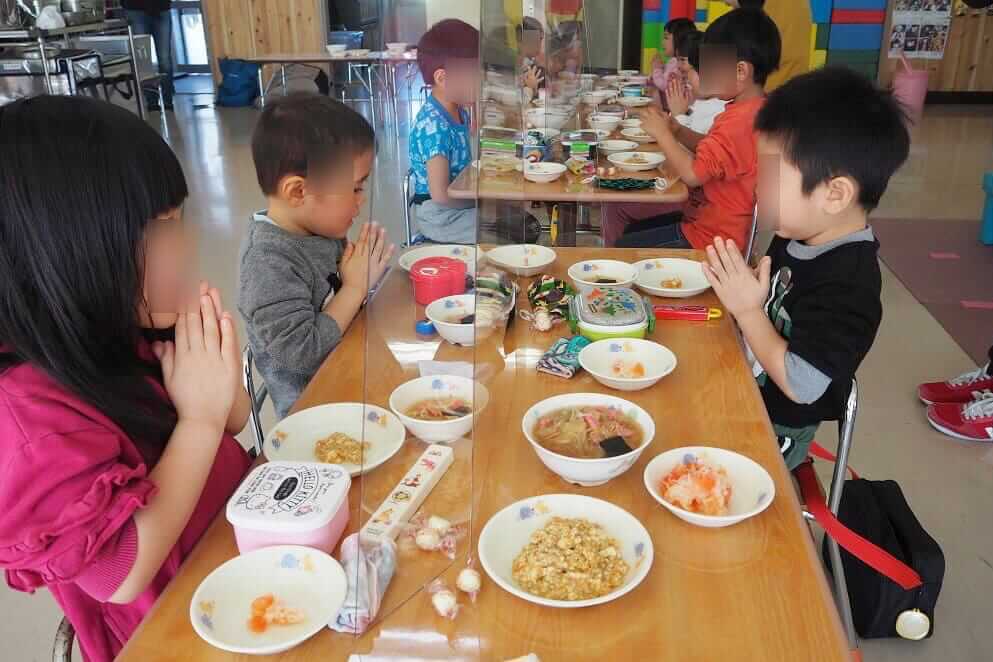
“Itadakimasu” before lunchtime.
Foreign visitors in Japan often encounter people saying “Itadakimasu” with their hands together before a meal.Praying before meals is not unusual in other countries, but itadakimasu carries a uniquely Japanese sense of gratitude and spirit shaped by history.At lunchtime in kindergartens and elementary schools, pupils say itadakimasu together with their teachers—a familiar scene across Japan.
Let’s take a closer look at the meaning behind this word.
Meaning of Itadakimasu
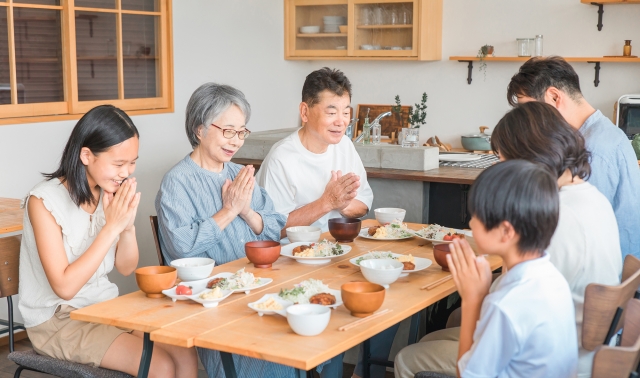
before enjoying their meal.
The phrase itadakimasu comes from the humble verb itadaku, meaning “to receive,” combined with the polite form -masu. Traditionally, it expresses humility and respect when receiving something from someone of higher status.
In English, you might say “thank you” when receiving a gift, but in Japanese, itadakimasu itself conveys gratitude even without adding arigatou (“thank you”). Of course, one may redundantly say arigatou gozaimasu, itadakimasu, but the phrase alone already carries a sense of thankfulness.
Meal Customs in Other Countries

In other cultures, as seen in movies or TV dramas, people may say a prayer, a blessing, or simply “Let’s eat” before meals. However, the Japanese itadakimasu carries a deeper implication, reflecting not only good manners but also a spiritual awareness of gratitude.
Gratitude for Those Who Cook
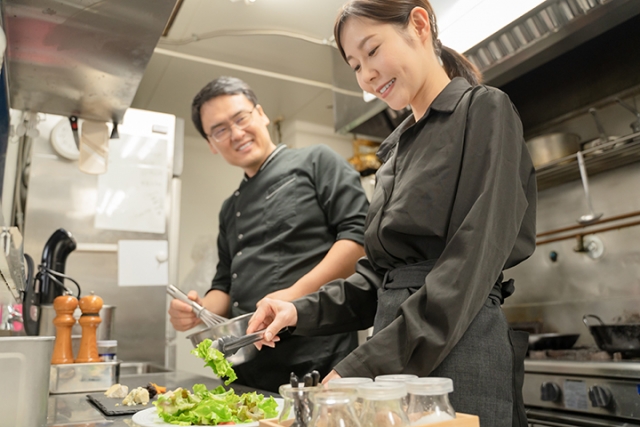
Behind every meal, there is someone who has spent time and effort preparing it. Saying itadakimasu is a way to thank not only the cook—whether a chef, friend, partner, or parent—but also all those who made the meal possible.
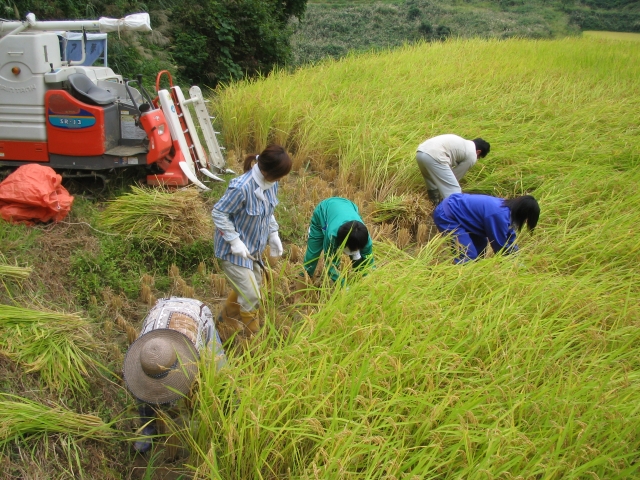
At a restaurant, gratitude extends to the chefs, the owner, and the staff. Beyond that, it also includes farmers, fishers, and producers who provided the ingredients.
When I was a child, my mother often reminded me: “Don’t leave a single grain of rice in your bowl, or we must apologize to the farmers who grew it.”
Gratitude for Living Things

on a fishing boat
Everything we eat—whether animal or plant—has life. While Buddhism teaches that all living beings should not be killed, human beings must eat to survive. Recognizing this, Japanese people developed the habit of expressing gratitude toward the animals and plants that give their lives as food.
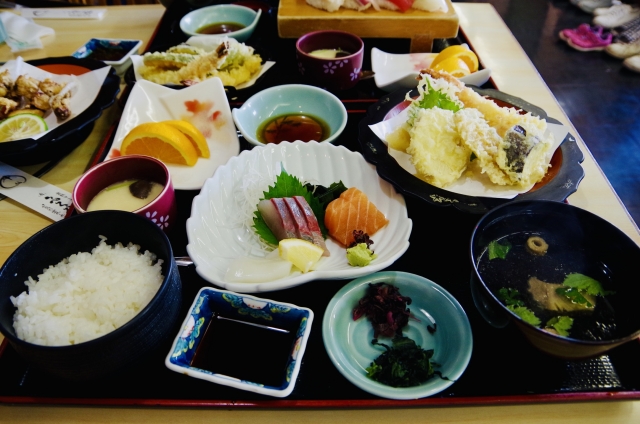
A famous Buddhist teaching says, “Soumoku kokudo shikkai jou-butsu” (草木国土悉皆成仏), meaning that even plants, trees, and the land itself possess Buddha-nature and can reach enlightenment. This belief encourages people to put their hands together in a gesture similar to a Buddhist practice when saying itadakimasu.
When Did This Custom Begin?
Interestingly, the custom of saying itadakimasu before meals is not very old. According to a joint study by the National Museum of Ethnology, early 20th-century Japanese families did not commonly use the phrase before meals. It was in the 1930s, during a time of food shortages and government control, that the habit was encouraged nationwide.
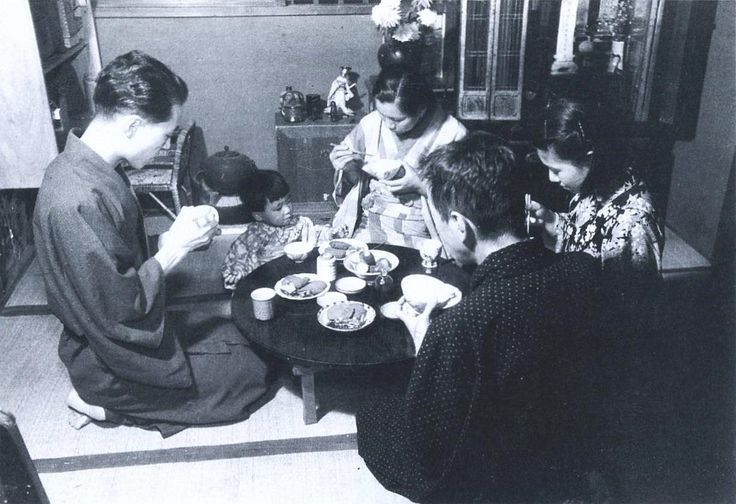
The folklorist Kunio Yanagita (1875–1962) noted in his 1946 book Daily Words that itadakimasu had “recently become popular among Japanese families.” In other words, the practice spread just before World War II and became widespread afterward.
Why Did It Take Root in Japan?
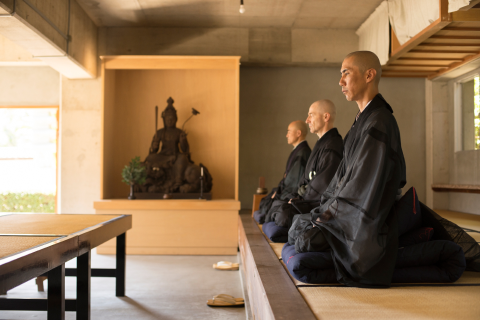
influenced by Buddhism teaching
Why did this custom, which began under government influence, become firmly established in Japanese daily life? Unlike many practices imposed during the prewar era that later disappeared, itadakimasu resonated with the Japanese heart.
The reason is simple: the phrase reflects traditional Japanese values—caring for others, respecting nature, and expressing gratitude. Although introduced as a policy, it touched the hearts of ordinary families and became a natural part of everyday meals.
“Gochisou-sama” – After the Meal
After eating, Japanese people say gochisou-sama. Written as ご馳走様, the word chisou originally meant “to run about” in order to prepare a feast. Thus, gochisou refers to the hospitality of serving delicious food. By saying gochisou-sama, people once again show appreciation for the meal, the cook, and the ingredients that gave their lives.
Together, itadakimasu before the meal and gochisou-sama after the meal embody the Japanese heart of gratitude.
Share Your Thoughts
Have you experienced something similar in your own culture?
Your reflections are welcome.
💬 Jump to the comment section


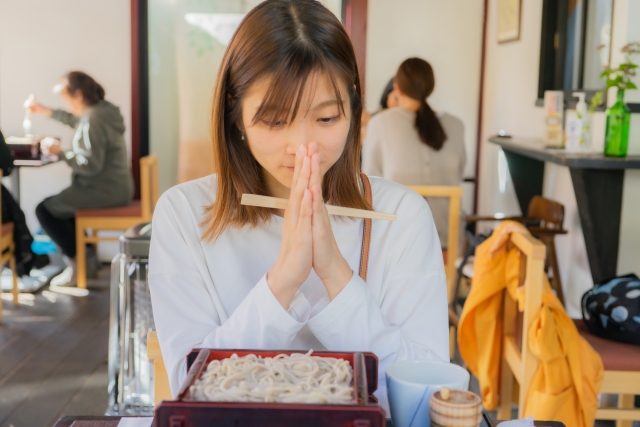


Share Your Experience of Japan